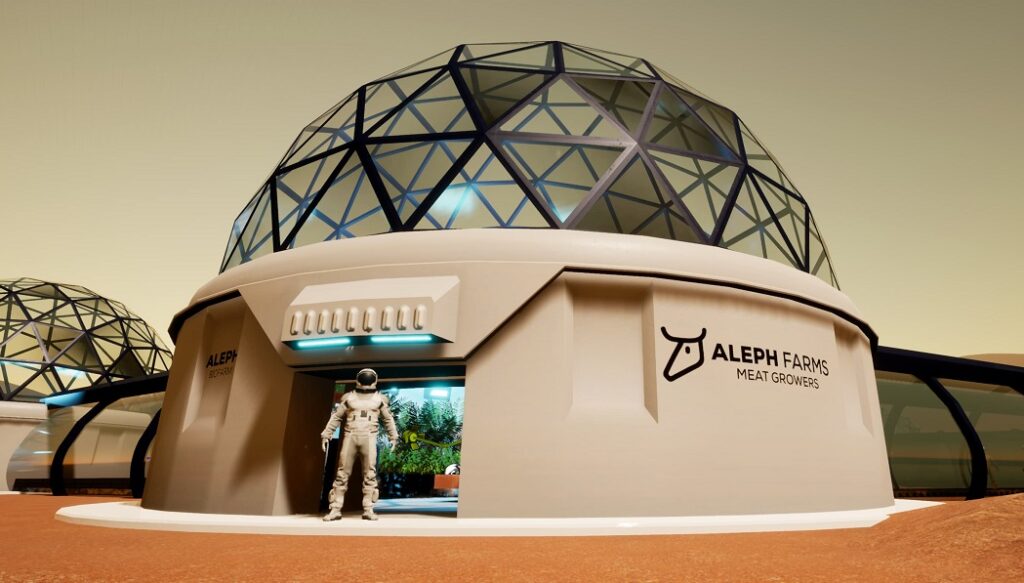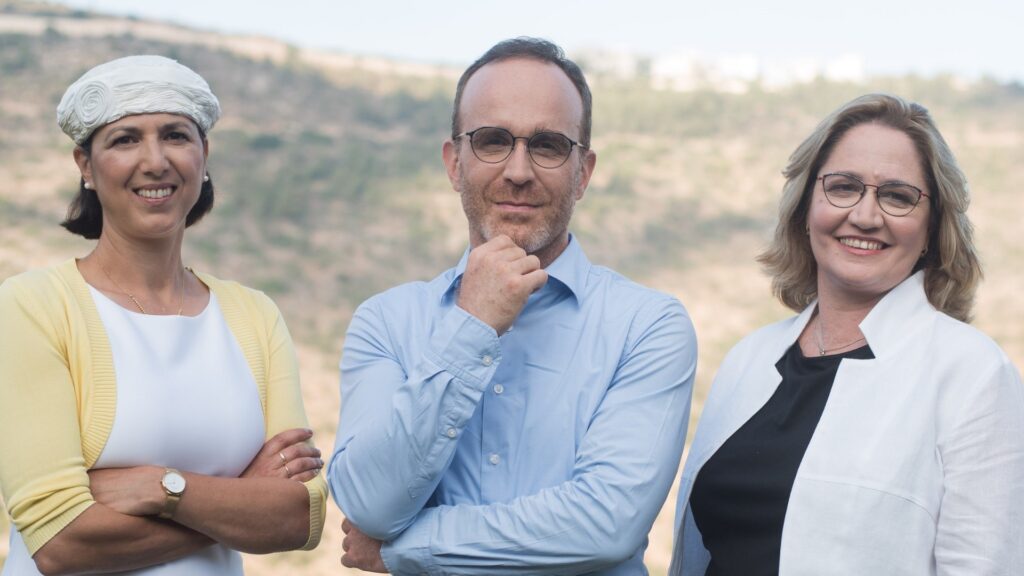Israeli cultivated meat startup Aleph Farms has raised $105 million in a Series B funding round to bring its cultured, slaughter-free meat to market next year. The company announced on Wednesday that the investment was led by the Growth Fund of L Catterton, an American-French global consumer-focused private equity firm, and DisruptAD, the venture capital arm of Abu Dhabi’s ADQ company and one of the largest venture platforms in the Middle East.
The funding also saw participation from Skyviews Life Science, as well as a consortium of leading global food and meat companies including Bangkok-based seafood producer Thai Union, Brazilian food multinational BRF, and South Korean food company CJ CheilJedang. Additionally, existing investors, including VisVires New Protein, Strauss Group, Cargill, Peregrine Ventures, and CPT Capital, took part in the Series B funding round. The funding brings Aleph Farms’ total capital raised to date to $118 million.
SEE ALSO: Aleph Farms Looks To Take Its Lab-Grown Meat Production To Space
Aleph Farms was founded in 2017 by Dr. Didier Toubia and Professor Shulamit Levenberg of the Biomedical Engineering Faculty at the Technion – Israel Institute of Technology, alongside Israeli food-tech incubator The Kitchen, a part of the Strauss Group.

In 2018, Aleph Farms unveiled the world’s first slaughter-free steak made from cow cells and a cultivated rib-eye steak earlier this year. In January, the company announced an agreement with Japanese multinational Mitsubishi Corporation’s Food Industry Group to bring cultivated meat to Japan, followed by a deal to operate in Brazil.
As a strategic partner to DisruptAD, Aleph Farms says it will evaluate the establishment of a manufacturing facility in Abu Dhabi to supply its cultivated meat products across the UAE and the broader GCC region.
Aleph Farms’ method to produce cultivated beef steaks relies on mimicking a natural process of muscle-tissue regeneration occurring inside the cow’s body, but under controlled conditions. The startup says it implements a combination of six unique technologies that allow it to drop the production costs of the meat, including innovative approaches to an animal-free growth medium to nourish the cells, and bioreactors – the tanks in which the tissue grows.
The company has also set its sights on the stars – literally – with plans announced last year for a new program called Aleph Zero. The program’s mission is to advance food security by producing fresh quality meat anywhere, independent of climate change and natural resources, and introduce new capabilities for producing food even in the harshest, most remote environments like space. This project was preceded by an experiment in 2019 to produce slaughter-free steak at the International Space Station, in a bid to demonstrate its mission to provide sustainable food security on Earth and beyond.

Taking Aleph Farms forward
The founders said in an announcement published on Wednesday that the fresh funding will help them execute plans for large-scale global commercialization and portfolio expansion into new types of animal protein sometime next year. The company is currently working with regulatory agencies for market entry.
“We are preparing towards an initial market launch in 2022 of our first product – a thin-cut beef steak, and are also building the foundation for global commercial expansion, including establishing long-term commercial agreements with local stakeholders from the meat sector. We have carefully hand-picked our partners based on synergies in sustainability commitments and our core values,” Toubia tells NoCamels.
Regarding the scale of the investment, Toubia says he feels “very humbled and am grateful for our partners.”
Sign up for our free weekly newsletter
Subscribe
“We are thrilled to grow our relationships with existing partners, and welcome select new investors in this funding round,” Toubia, who serves as CEO of Aleph Farms, said in the announcement. “This additional capital from top-tier partners with unparalleled experience and expertise brings us significantly closer to our vision of providing secure and unconditional access to high-quality nutrition to anyone, anytime, anywhere. We see our investors as partners for building this new category of meat and it was critical to us that they share our strong commitment to improving the sustainability of our global food systems.”
The company’s near-term milestones include scaling-up manufacturing, growing operations internationally, and expanding product lines ahead of an initial market launch in 2022.
Further, says Toubia, Aleph Farms “will expand product lines and our technology platform with new animal proteins in addition to beef, and scale our 3D bioprinting platform, following the unveiling of our proof-of-concept ribeye steak in February 2021.”
“These developments are in line with our mission to generate more range and deliver a more diverse spectrum of culinary experiences associated with eating meat. We believe that additional meat designs will drive a larger impact in the mid to long term,” he tells NoCamels.

“With cultivated whole-muscle cut steaks, an optimized platform for cost parity at scale, and a global partnership network with the world’s largest meat producers, Aleph Farms has differentiated itself as the leading cultivated meat company poised to go to market,” said Michael Farello, a managing partner at L Catterton’s Growth Fund, which manages $30 billion of equity capital across its fund strategies and 17 offices around the world.
“We are excited to support their success as they prepare for global launch, and we look forward to leveraging our significant expertise in food and sustainable businesses that meet the needs of a changing consumer and a changing world,” added Farello.
Mansour AlMulla welcomed Aleph Farms on behalf of DisruptAD as its first Israel-based partner, and said: “Our partnership with Aleph Farms underpins our long-term desire to accelerate the path for technology pioneers and change leaders that are building technologies of tomorrow.”
Israel – a clean meat hub
Israel is home to a host of startups and companies working in the clean meat and/or plant-based “meat” space.
These include Future Meat Technologies, a cultured meat developer that recently launched the world’s first industrial cultured meat facility in Rehovot; Redefine Meat, an Israeli food tech startup that is carving out an important spot in the vegan meat space and recently announced a $29 million funding round that will go toward a commercial launch; SuperMeat, a developer of lab-grown poultry extracted from chicken cells; MeaTech, a cultured meat bioprinting company focused on chicken fat; and SavorEat, a vegan burger maker and the first food tech company to go public on the Tel Aviv Stock Exchange (TASE).
Related posts

Editors’ & Readers’ Choice: 10 Favorite NoCamels Articles

Forward Facing: What Does The Future Hold For Israeli High-Tech?

Impact Innovation: Israeli Startups That Could Shape Our Future




Facebook comments